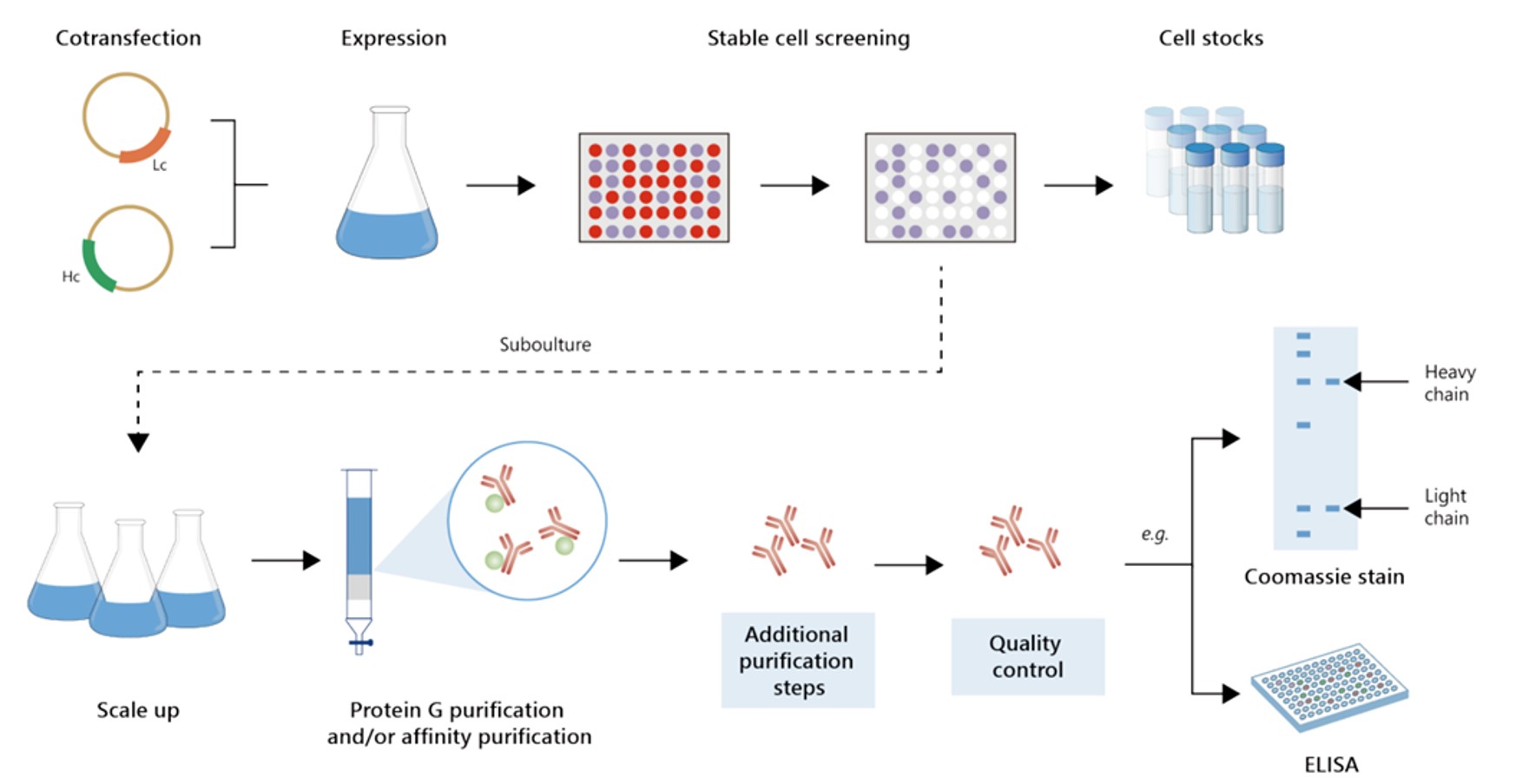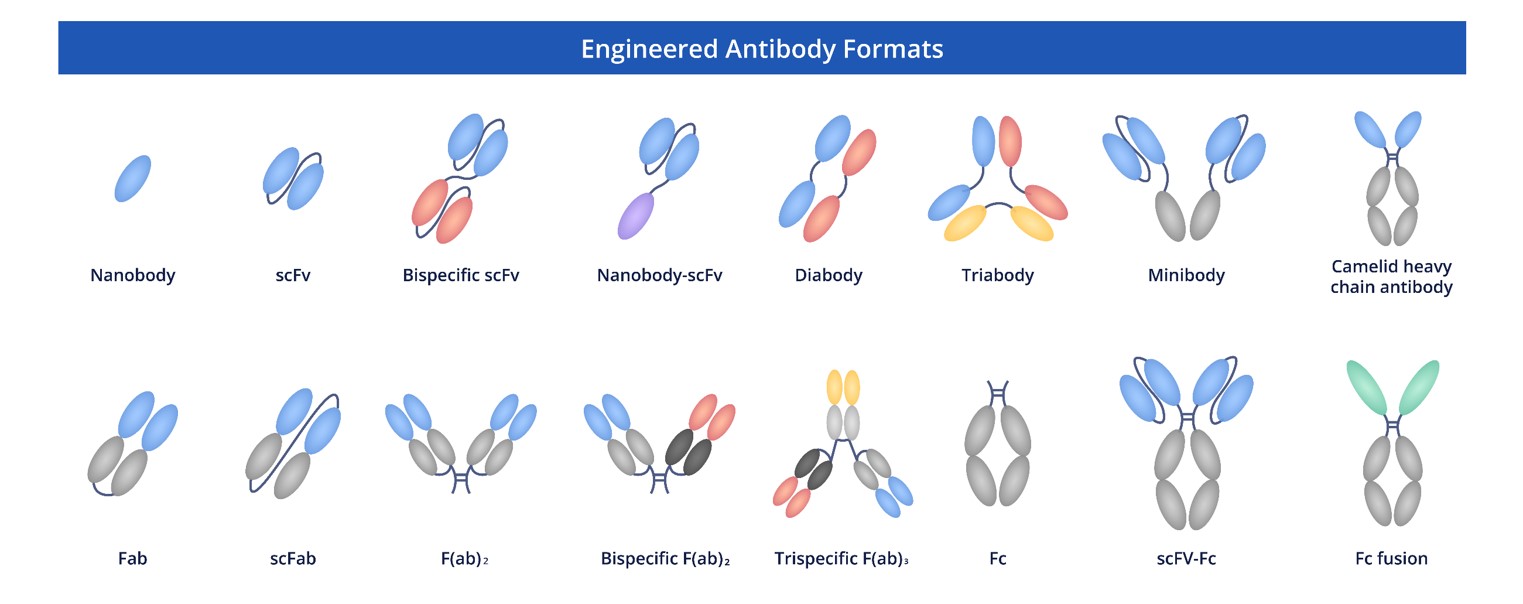 Loading...
Loading...

Anti-HTR1B Recombinant Antibody Products
 Loading...
Loading...Anti-HTR1B Products
-
- Derivation: Mouse
- Species Reactivity: Human
- Type: Mouse IgG1
- Application: ELISA, WB, IHC
- Anti-HTR1B Immunohistochemistry Kit (VS-0525-XY3351)
-
- Species Reactivity: Human
- Target: HTR1B
- Application: IHC
Can't find the products you're looking for? Try to filter in the left sidebar.Filter By Tag
Our customer service representatives are available 24 hours a day, from Monday to Sunday. Contact Us
For Research Use Only. Not For Clinical Use.
Creative Biolabs delivers high-performance recombinant antibodies against HTR1B, thoughtfully developed to support cutting-edge research in neuroscience and pharmacological sciences. Utilizing advanced antibody engineering platforms, we provide thoroughly validated reagents known for their consistency, specificity, and dependable results across diverse experimental applications. Our broad collection of antibodies balances accuracy with affordability, making them ideal for a wide range of research needs. In addition to supplying these robust research tools, our team offers individualized technical support to assist at every step of your scientific workflow. Connect with Creative Biolabs to access accuracy-crafted antibody solutions and expert guidance aimed at advancing your exploration of neurotransmitter receptor mechanisms.
HTR1B: A Key Modulator in Depression Anxiety and Migraine Pathologies
HTR1B, a subtype of the serotonin receptor family, plays a vital role in regulating neurotransmitter dynamics and has been associated with a range of neuropsychiatric conditions. Alterations in this G protein-coupled receptor’s activity are linked to the pathogenesis of major depressive disorder by disrupting serotonergic signaling and affecting neuronal plasticity mechanisms. In anxiety-related conditions, its abnormal function impacts emotional processing networks, especially within the amygdala and prefrontal regions. HTR1B’s influence on dopamine pathways also ties it to addiction, where its effects on behavior vary depending on neural circuit localization. In migraine, the receptor may contribute to pain generation through involvement in trigeminal system activation and neurogenic inflammation. Research increasingly connects HTR1B to impulsivity and aggression, likely through altered communication between the prefrontal cortex and limbic structures. While pharmacological agents such as agonists have shown promise in treating migraines and antagonists are being assessed for mood disorders, therapeutic development is complicated by its broad and nuanced expression profile, along with species-dependent signaling variations. Genetic diversity further shapes clinical responses, underlining the importance of personalized approaches. Targeting HTR1B demands a careful strategy to balance its inhibitory signaling and role in cerebrovascular processes, marking it as a complex but promising candidate for neurological therapeutics.
Alternative Names
Complement HTR1B; 5-HT-1D-Beta; 5-Hydroxytryptamine (Serotonin) Receptor 1B; HTR1D2; Serotonin Receptor 1B; 5-HT1DB; 5-HT1B; 5-Hydroxytryptamine (Serotonin) Receptor 1B, G Protein-Coupled; S12
Background
The neurotransmitter serotonin (5-hydroxytryptamine; 5-HT) exerts a wide variety of physiologic functions through a multiplicity of receptors and may be involved in human neuropsychiatric disorders such as anxiety, depression, or migraine. These receptors consist of several main groups subdivided into several distinct subtypes on the basis of their pharmacologic characteristics, coupling to intracellular second messengers, and distribution within the nervous system (Zifa and Fillion, 1992 [PubMed 1359584]). The serotonergic receptors belong to the multigene family of receptors coupled to guanine nucleotide-binding proteins.
FDA approved drug targets, G-protein coupled receptors, Transporters
Membrane
Not detected
Not detected in immune cells
Group enriched (HUVEC TERT2, TIME)
Homodimer. Heterodimer with HTR1D.
G-protein coupled receptor, Receptor, Transducer
Anti-HTR1B rAb Products
These antibodies targeting HTR1B support rigorous neuroscience research by providing thoroughly validated and reliable detection of the receptor. Carefully engineered to minimize cross-reactivity, they are adaptable for a wide range of applications such as behavioral analysis and detailed receptor localization. Researchers can also rely on our dedicated technical support team for assistance with optimizing protocols and resolving experimental challenges, ensuring consistent and accurate results across studies.
| Cat. No. | Product Name | Target Species | Host Species | Applications |
| MOB-2698z | Mouse Anti-HTR1B Recombinant Antibody (clone 42A12) | Human | Mouse | ELISA; WB; IHC |
Customer Reviews

Mouse Anti-HTR1B Recombinant Antibody (clone 42A12) (CAT#: MOB-2698z)

Mouse Anti-HTR1B Recombinant Antibody (clone 42A12) (CAT#: MOB-2698z)
rAb Production
With a dedicated focus on recombinant antibody production, we utilize cutting-edge methodologies to generate thoroughly tested and highly reliable reagents. Emphasizing strict quality assurance and streamlined manufacturing workflows, we ensure that each antibody consistently meets performance standards. Our commitment to operational efficiency allows for timely delivery, enabling researchers to stay on schedule and maintain momentum in their experimental progress. By combining scientific accuracy with dependable turnaround, we aim to be a trusted partner in advancing your research objectives.
Featured Anti-HTR1B Recombinant Antibody Production Platforms
Fig.1 Milligram-scale anti-HTR1B recombinant antibody production.
 Fig.2 Gram-scale anti-HTR1B recombinant antibody production.
Fig.2 Gram-scale anti-HTR1B recombinant antibody production.
rAb Modalities
Creative Biolabs focuses on providing engineered antibody solutions in various formats, utilizing innovative design technologies to address a wide array of research demands. Our extensive experience encompasses advanced development platforms that support both off-the-shelf and tailor-made antibody services, carefully optimized to suit distinct scientific applications and experimental goals.
 Fig.3 Full Length Anti-HTR1B Recombinant Antibody Production and Modalities.
Fig.3 Full Length Anti-HTR1B Recombinant Antibody Production and Modalities.
For any technical questions related to HTR1B, our antibody experts stand ready to offer detailed application assistance and advice on optimizing your experiments. Researchers are encouraged to contact us via our usual communication methods to receive personalized support and tailored solutions designed to improve the outcomes of their serotonin receptor research projects.

